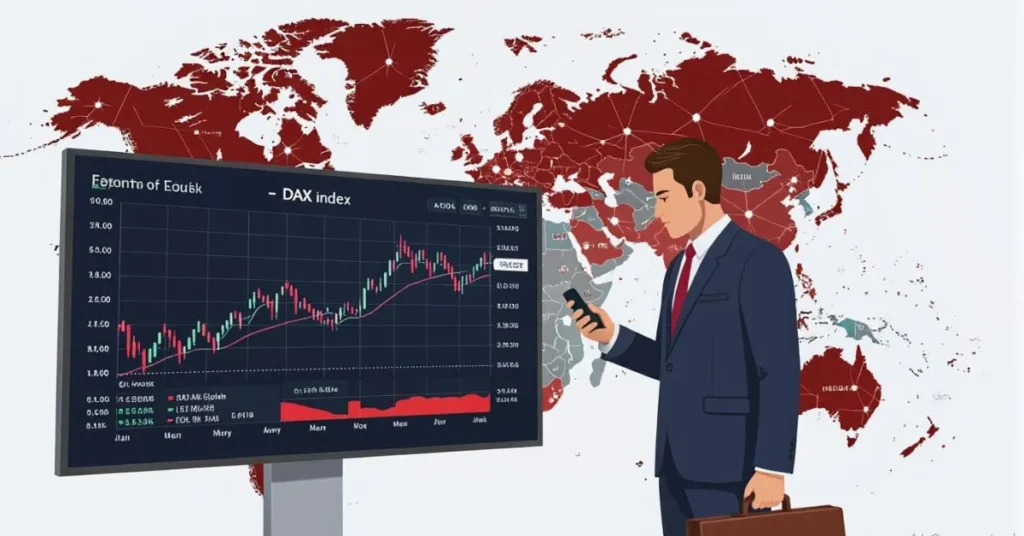Porsche AG’s removal from Germany’s prestigious DAX index on September 22, 2025, marks a significant turning point for investors tracking European automotive stocks. The luxury sports car manufacturer’s exit from the 40-member blue-chip index reflects mounting pressures from US tariffs, declining China demand, and costly electric vehicle strategy reversals.
Market Impact and Investor Implications
Porsche’s DAX exit follows a dramatic 33% share price decline over 12 months, with stocks falling from €82.50 at IPO to below €45. The carmaker now joins the mid-cap MDAX index alongside Sartorius, while Scout24 and GEA Group take their positions. This index reshuffle signals broader challenges facing Germany’s industrial sector and raises concerns about portfolio rebalancing for institutional investors.
US Tariffs and Global Headwinds
The 15% US import tariffs on European vehicles have cost Porsche approximately €581 million through September 2025. Without US manufacturing facilities, the company faces sustained margin pressure in its largest market. CEO Oliver Blume attributed the DAX removal to technical factors, specifically Porsche’s low free float of 12.5%.
China Demand Collapse
Porsche’s China deliveries plummeted 26% in 2025 as consumers shifted to domestic electric vehicle brands offering competitive technology at lower prices. The luxury EV segment faces fierce competition from BYD and other Chinese manufacturers, eroding Porsche’s traditional market position.
Strategic Realignment Costs
In October 2025, Porsche reported its first quarterly loss as a public company—€967 million—driven by €2.7 billion in restructuring charges for abandoning battery production plans. The company delayed pure electric model launches while extending combustion engine and hybrid production. Operating margins collapsed from 14.1% to just 2% for 2025.
Future Outlook for Investors
Despite the setback, Porsche maintains nearly €20.4 billion market capitalization and strong brand equity. New CEO Michael Leiters, assuming leadership in January 2026, faces the challenge of reviving China demand and navigating the EV transition. Blume pledged Porsche aims to rejoin the DAX “as soon as possible” through its restructuring strategy.
The DAX exit represents a broader sectoral rotation in German equities from traditional manufacturing toward digital platforms and industrial automation. For global investors, Porsche’s challenges underscore risks in luxury automotive exposure amid trade tensions, regional demand volatility, and electrification uncertainties.
Focus Keywords: Porsche DAX exit, Germany stock index, investor implications, US tariffs impact, China demand decline, luxury automotive stocks, electric vehicle strategy, global economy, market capitalization, portfolio rebalancing
Hashtags: #PorscheDAX #GermanStockMarket #InvestorAlert #AutomotiveStocks #EVStrategy #GlobalEconomy #LuxuryCars #StockMarketToday #DAXIndex #InvestmentNews
DISCLAIMER
This article is provided for educational and informational purposes only. It does not constitute financial, investment, or professional advice. Readers should conduct their own research and consult with qualified financial advisors before making any investment decisions. Stock market investments carry inherent risks, and past performance does not guarantee future results.

